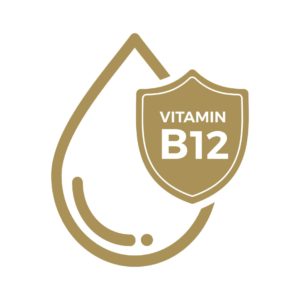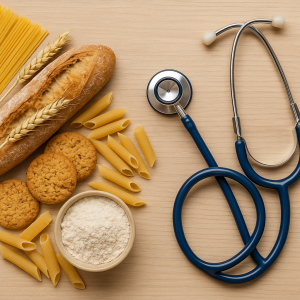 Vitamin B12, also known as cobalamin, is an essential vitamin found in animal sources such as liver, eggs, dairy products, and some types of seafood. It is a water-soluble vitamin that is important for many functions in the human body, such as brain and nervous system functioning, red blood cell formation, and energy metabolism.
Vitamin B12, also known as cobalamin, is an essential vitamin found in animal sources such as liver, eggs, dairy products, and some types of seafood. It is a water-soluble vitamin that is important for many functions in the human body, such as brain and nervous system functioning, red blood cell formation, and energy metabolism.
The body cannot produce vitamin B12 on its own, so it must be obtained through dietary sources. It is recommended to consume 2.4 micrograms of it daily for adults age 14 and older. Deficiency of this vitamin can result in a variety of symptoms, such as fatigue, confusion, anemia, and nerve damage. It is often difficult to diagnose deficiency since many of the signs are non-specific, so it’s important to maintain a balanced diet and supplement as necessary.
Health benefits of vitamin B12
Vitamin B12 is very important in the body, since it helps keep our DNA and red blood cells healthy. It is especially important in the elderly population, since it helps avoid anemia and cognitive decline. It is also necessary for pregnant women, as a deficiency can result in neurodevelopmental problems in babies born to mothers with a low B12 level. Vegetarians and vegans may also need to supplement with B12 if they do not consume fortified foods or supplements, since plant-based foods do not have this vitamin naturally.
Article continued below
Overall, the importance of vitamin B12 in maintaining a healthy body cannot be understated. It is essential for many functions in the body, including energy metabolism, red blood cell formation, and nervous system functioning. Without enough of this essential vitamin, a multitude of symptoms can arise. Therefore, ensuring a healthy intake of this vitamin is essential for maintaining overall health.
Best sources of vitamin B12
1. Fish: oily fish, such as trout, tuna, and salmon; and crustaceans, such as crab and clams, are excellent sources of vitamin B12.
2. Dairy Products: Milk, yogurt and cheese are particularly good sources of vitamin B12.
3. Eggs: Eggs are a great source of vitamin B12 and can be easily added to many types of meals.
4. Fortified Foods: A variety of fortified foods, such as breakfast cereals, plant-based milks, and nutritional yeast, often contain significant amounts of vitamin B12.
5. Meat and Poultry: Lamb, beef and chicken are all excellent sources of vitamin B12.
6. Supplements: Dietary supplements, such as pills or sublingual drops, are an easy way to get enough vitamin B12, even for vegetarians and vegans.






